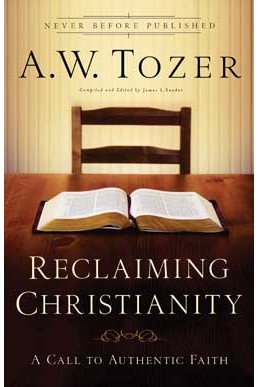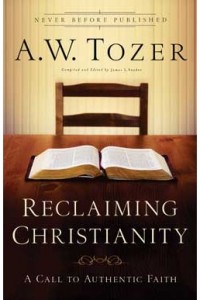The topic of poverty is set within some deep waters, as only some can identify with it, most would like to avoid it and no one seems to have the answers for it. I can’t say that I’m any better off than the majority, as I have always had my needs met, in honesty must admit that I love luxury over scarcity and at best my ideas are lofty and idealistic. Nevertheless, poverty is a concern to me. My heart goes out to those who are barely getting by, and my anger is stirred when I see the disparity between the rich and the poor. “Ending welfare” is both a concept and an indicator of the greater task at hand — ending poverty.
The Situation
A recent report titled How America’s Losing The War on Poverty explains that roughly “16 percent of Americans live at or below the poverty line.” That means that 84 percent live above the poverty line. With some CEOs raking in 380 times an average worker’s pay in America, you begin to realize that there are two different stories going on.
America went through some hard years recently with the “housing crisis”, but we still come nowhere close to the type of poverty that most live with around the world. Poverty, by third world standards, is living on less than $1-2 per day. When you compare that with “Poverty in America” being $23,000 per year for a family of four, it begins to look as if we are the “CEOs” of today’s global economy.
There is absolute poverty and relative poverty. In America, even the poorest only suffer from relative poverty, and oftentimes there are opportunities available to end that poverty — unlike children and families living in the dirt out in the fields of Somalia or India.
Briefly, before we move on, let me be clear that in my opinion, America’s view on wealth and need is grossly distorted. NPR’s article that I mentioned earlier stated “On top of that, 100 million of us — 1 out of 3 Americans — manage to survive on a household income barely twice that amount. How is this poverty crisis happening?” I don’t know if the frustration that is aroused in my by this type of comment is common to others, but I think that it’s ridiculous to think that families living on $46,000 per year are “managing to survive”. When you’ve got a car, a phone and a choice of what kind of cereal you want to eat in the morning (which is what $46k can afford), this is simply an absurd statement that reveals the true state of the American mind.
So, what do we do about it?
“Give your money away and all live happily ever after.”
Well, that’s the simple answer. But in reality, it’s not far from the truth. A major problem that I see is that at some point, the Church stopped being the Church. Christians stopped reflecting Christ.
When this happened, the government saw the people that the Church used to take in, pray for, heal, feed, protect and provide for, and people said, “There’s a lot of hurting people. We should do something about it.” But unfortunately, American’s looked to the government to fix it. So the government started a lot of programs, like welfare, medicare, medicaid, social security, etc.
We have come to learn that these programs are now underfunded and, in the case of welfare, a larger detriment to the people they are trying to help. By this, I mean that when the idea of selling food stamps for drugs or making the decision to be unemployed because welfare provides enough to get by — when these behaviors are the result of our “help”, we are obviously no real benefit at all. Yes, this may be the case of some people’s poor decisions may ruining it for others, but I believe that the task of feeding the hungry should never have been placed on the government’s shoulders. Christ clearly told his followers to take care of that; that generosity and caring for the needs of others would be a mark of a true believer.
Welfare is a sign that the Church has departed from Christ. I believe that ending welfare, by the Church meeting the needs of the poor, is part of the Kingdom of God coming on this earth.
The way that legislature works, trying to pass even the simplest laws into effect can take months and thousands of dollars worth of salaries of politicians and lobbyists. So trying to change our society from the top down is a large waste of effort.
Instead, I think Christ modeled a grass-roots approach. He gathered some simple fisherman to spread the news of the Kingdom of God, so it’s fair to say that a group of passionate, educated people such as ourselves might have what it takes to take on a poverty-sized challenge.
The Church being the Church
The Church must return to being the Church that God intended it to be. From the earliest onset of the Kingdom of God on earth, we were given the command to manage well what we have been entrusted. We are to be stewards of our resources — time, money, energy, intelligence — to accomplish God’s will. His will is that all should come to know Him and that His Kingdom come to earth as it is in heaven, where there is no weeping, death or poverty.
This means that Church needs to step through the barriers of welfare, crossing the lines of responsibility and take on the needs of those around them. And perhaps, we must take on the needs of those that are not around us as well. With the abundant resources that we have been given, we often chose to live in communities of people with similar resources, so the problem of poverty is nowhere to be seen. It may be that we need to move into parts of town that are hurting, or at least spend time there, so we can become acquainted with the needs around us.
The grass-roots approach
But this lifestyle change and responsibility swap will not happen if we wait for our preachers to tell us from the pulpit. The sad truth is that most preachers will avoid delivering the full weight of what needs to be said because their own livelihood depends on whether or not people like what they are saying; and who likes to be told that their lifestyle is too comfortable and they need to pursue a radical faith if they are to have any sincere faith at all?
No, this lifestyle change happens at home and in the heart. It begins by God changing our hearts and opening our eyes. It looks like leaders of the household, men of God, rising up and guiding their families toward a more fruitful and sold-out existence as a family. It looks like sacrifices made in the home and the budget that enable generosity as it as never been seen before.
When families are changed, they change those around them, including the local church. And in the words of Bill Hybels, “When you change the local church, you change the world.”
A dream for tomorrow
I truly believe that it can happen and that God will support our efforts if we begin to pursue His will and love others as Christ modeled servant-hearted love. I believe that our money and effort extended to the needs around us — the single mothers, the widows and the orphans — can snuff out the fires of relative poverty in our neighborhoods, causing the government to see that the problems no longer exist. In order for this to happen, it must spread in a wide-scale fashion, but it must also stir deeply in our own hearts and minds, so that every decision we make runs through a filter asking, “Does this purchase or decision enable me to reflect the love of Christ, bring the Kingdom of God and steward my resources in the most God-honoring way possible?”
When we do this, we will be changed — and we will ignite a type of blaze that engulfs the comatose, zombie-like pursuit of vain luxuries fueled by self-centered consumerism and perpetual commercialism in our lives today.


 When you look at our churches and the people that attend, who do you see? What types of people?
When you look at our churches and the people that attend, who do you see? What types of people?
